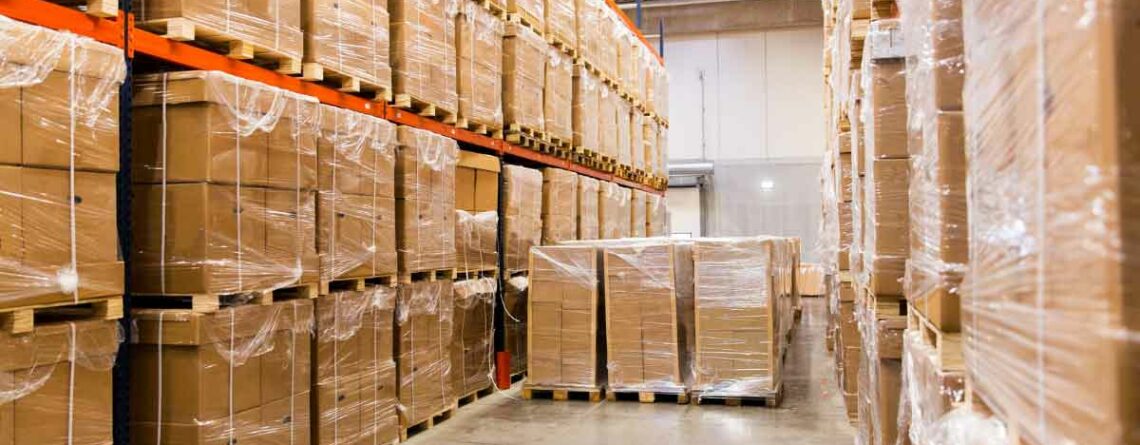What is Warehousing ?
Introduction
- The act of warehousing involves storing goods that can be sold or distributed later. Warehousing plays a significant role in the supply chain by enabling companies to store goods until they are ready for shipment to customers or other locations.
- The warehouse is a commercial building for storage of goods. Warehouses are of different sizes and types, from small storage units to large distribution centres. Depending on the needs of the company, warehouses can use them for short-term or long-term storage. Moreover, companies can utilize warehouses to store a variety of goods, ranging from raw materials to finished products.
Purpose of warehousing
- The purpose of warehousing is to provide a centralized location. Warehousing is an essential component of supply chain management and plays a critical role in facilitating the movement of goods from producers to consumers. Specifically, warehousing serves the following purposes:
- Storage: Warehouses provide a secure and controlled environment for storing goods, protecting them from damage, theft, and other risks.
- Inventory management: Warehousing helps companies manage their inventory levels and track the movement of goods within the supply chain.
- Consolidation and sorting: Warehouses can serve as a hub for consolidating goods from multiple sources and sorting them for distribution to different destinations.
- Cross-docking: In warehousing, companies can also utilize cross-docking, an active process that entails receiving goods from suppliers and instantly transferring them to outbound vehicles for delivery to customers.
- Value-added services: Warehouses can offer value-added services such as packaging, labeling, and assembly, to customize products and meet customer requirements.
Overall, warehousing helps companies optimize their supply chain operations, reduce costs, improve efficiency, and provide better customer service.
There are several types of warehousing that businesses may use to store and manage their inventory. The following are some common types of warehousing
Types of warehousing
- Public Warehousing: Third-party logistics companies (3PLs) own and operate these facilities. Businesses can rent space in these warehouses to store their products. Public warehousing can be a cost-effective solution for businesses that do not have the resources or need for their warehouse.
- Private Warehousing: A business owns and operates these facilities exclusively for its own use. Private warehousing provides businesses with more control over their inventory management and allows them to customize the facility to meet their specific needs.
- Bonded Warehousing: Bonded warehouses are secure facilities that store goods under the supervision of government customs officials. People commonly use these warehouses for storing goods that are subject to customs duties, taxes, or other regulations.
- Distribution Centres: These are warehouses that are strategically located to facilitate the distribution of goods to different regions. The design of distribution centres aims to enable them to receive, store, and ship significant amounts of products.
- Automated Warehousing: These are warehouses that use automation technology to store and manage products. Automated systems can include conveyor belts, robotic storage and retrieval systems, and computerized inventory management systems.
- Climate-Controlled Warehousing: Warehouses designed to maintain specific temperature and humidity levels are known as climate-controlled warehouses. Companies commonly use climate-controlled warehousing to store perishable goods, such as food and pharmaceuticals.
- Cross-Docking Warehousing: A warehouse of this type facilitates the transfer of goods from one mode of transportation to another by unloading products from one vehicle and then immediately loading them onto another vehicle for shipment to their final destination.
A business will choose the type of warehousing based on its specific needs, such as the type of product being stored, the size of the inventory, and the frequency of shipments.
Characteristics of warehousing
Warehousing is a crucial component of the supply chain that involves the storage and management of goods and products. Some of the key characteristics of warehousing are:
- Storage: Warehouses store goods and products before shipping them to their final destination, providing ample storage space for the same. They offer a safe and secure environment to store products and protect them from damage, theft, and weather-related factors.
- Inventory Management: Warehouses are responsible for managing inventory levels and ensuring that the right products are available at the right time. They track inventory levels, monitor demand patterns, and forecast future demand to ensure that they always have sufficient stock on hand.
- Transportation: Warehouses often serve as a hub for transportation, actively providing a central location to consolidate goods and ship them to their final destination. They may also offer value-added services such as labeling, packaging, and assembling products for shipment.
- Technology: Warehouses make use of technology to streamline operations and improve efficiency. They may use automation, robotics, and other technologies to handle and move products, as well as software systems to manage inventory and track shipments.
- Safety: Warehouses must comply with health and safety regulations to ensure the safety of workers and protect against accidents and injuries. They may also have security measures in place to prevent theft and unauthorized access to the facility.
- Flexibility: Warehouses must be flexible enough to adapt to changing market conditions and customer needs. They must be able to quickly adjust inventory levels, shipping schedules, and other factors to meet changing demands.
- Rates: Public warehousing rates are based upon
- Value
- Volume
- Weight density
- Hazardous Materials
- Degree of fragility
Conclusion
Overall, companies consider warehousing an important aspect of the supply chain as it enables them to store goods until they are ready for shipment. It can help to improve efficiency and reduce costs.
FAQs
Ans: Warehousing is the process of storing goods in a facility that is specifically designed for that purpose. Companies store goods as an essential aspect of the supply chain, enabling them to hold products until they are ready for shipment to customers or other locations.
Ans: Warehouses can be used for a variety of different types of goods, from raw materials to finished products. Some warehouses specialize in storing particular types of goods, such as perishable or hazardous materials.
Ans: Warehouses can be used for short-term or long-term storage, depending on the needs of the company. During warehouse design, designers intend some warehouses for long-term storage, while they intend others for short-term storage.
Ans: Some advantages of warehousing include: it allows companies to store goods until they are ready to be shipped, which can help to improve efficiency and reduce costs. Storing goods in a warehouse mitigates the risk of damage or loss, providing protection from the elements and other hazards.
Ans: Some disadvantages of warehousing include: it can be expensive as it requires a significant investment in infrastructure and equipment. Additionally, the cost of maintaining and staffing a warehouse can also be significant. Furthermore, improper maintenance of the warehouse can potentially cause damage or loss of goods.
Ans: To guarantee the safety of your stored goods, you can take the following measures: collaborate with a reputable warehouse provider, implement an inventory management system, and perform regular inspections of the warehouse and the goods.
Ans: Yes, most warehouse providers use a warehouse management system that allows you to track the movement and storage of goods within a warehouse. Proper storage helps ensure products are available at the right place and time, reducing the risk of stockouts and overstocking.



Leave a Reply